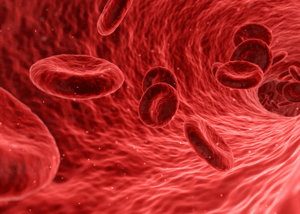
Blood Biomarkers
Help identify underlying risks and potential causes of cognitive decline and track changes to your brain health over time

Blood Biomarkers Tests
There are many causes of cognitive decline. Our series of blood tests is designed to better understand your overall risk factors and potential causes of cognitive problems, and to track changes over time.
If initial testing indicates that risk factors are significant, we may recommend a neurologist chart review and testing for biomarkers specific to Alzheimer’s disease, which can appear in blood 10-20 years before the onset of symptoms. This is not a diagnostic test to determine if you have Alzheimer’s, but to identify early biomarkers that scientific literature suggests may be important to track over time.
Biomarker testing requires BrainHealth Membership.
What to Expect
Requires BrainHealth Membership
- Why This Test Is Helpful
- What This Test Measures
- Who This Test Is For
- What This Test Includes
Why This Test Is Helpful
-
Early detection and tracking of biomarkers allows you to be proactive in preventing or delaying cognitive symptoms.
-
Individual and combinations of biomarkers help potentially identify causes of cognitive decline.
-
With early detection of biomarkers, lifestyle changes can be implemented in order to potentially help slow or stop memory loss and cognitive decline.
-
Since only limited evidence is available to support the potential efficacy of memory-support supplements, repetitive biomarker testing can help determine whether these supplements are effective or not.
-
Biomarker documentation may help with access to some clinical trials.
What This Test Measures
The initial blood tests measure biomarkers for cardiovascular, metabolic, inflammatory, and nutritional risk factors. If risk factors are significant, we may recommend a Neurologist chart review and subsequent testing for biomarkers related to Alzheimer’s disease.
These tests are designed to detect the β-amyloid peptides, phosphorylated tau and neurofilament light (NfL) proteins in biological fluids. Alzheimer's disease is a neurodegenerative disorder characterized by the accumulation of extracellular amyloid plaques and intracellular neurofibrillary tangles in the brain. The major components of the amyloid deposits are the 40- and 42- amino acid-long β-amyloid peptides. The neurofibrillary tangles are made up of paired helical filaments composed mainly of abnormally hyperphosphorylated Tau protein (pTau). The combination of decreased concentrations of β-amyloid42/β-amyloid40 ratio and increased concentrations of total pTau is considered to be a pathological biomarker signature in cerebrospinal fluid (CSF) that is diagnostic for Alzheimer’s disease. Current research indicates plasma β-amyloid42/β-amyloid40 ratio has the potential to be used in clinical settings to predict brain β-amyloid burden.
Neurofilaments can be released into circulation due to neural injury or neurodegeneration. Elevated blood neurofilament light levels have been associated with traumatic brain injury, multiple sclerosis, frontotemporal dementia, and other neurodegenerative diseases.
Who This Test Is For
Biomarker testing is a simple blood draw that is cost-effective and is easy to administer. The test is for anyone with memory complaints, risk factors, or for those who are concerned about their family history and want to be proactive about their brain health. For those taking memory-support supplements, or already following an exercise, diet, and sleep regimen, it may also help objectively assess those interventions' impact.
What The Test Includes
-
Order for blood collection at a lab location near you
-
CLIA Certified Clinical Laboratory processing
-
Digital and printable results to share with your family and healthcare provider
-
Follow-up consultation with a BrainHealth Educator
Biomarker Testing is Proactive
Currently, one in three people die with Alzheimer's or another form of dementia, but signs can appear in the blood 10-20 years before onset, and science now shows that disease progress can be slowed if detected early.
Cognitive decline can sometimes look like Alzheimer’s disease, but may have another cause that is treatable such as vitamin B12 deficiency, hypothyroidism, hypoglycemia, amongst others. If you have risk factors or a family history of neurodegenerative diseases, biomarker testing allows you to proactively measure the impact of preventative measures, including lifestyle changes.

Review Your Results with a BrainHealth Educator
Each blood biomarker test includes a consultation with a BrainHealth Educator to review your results, discuss any changes to your data over time, and help you identify lifestyle changes—such as improved nutrition, sleep, and exercise—to improve your health and potentially prevent cognitive decline.
.jpg?width=300&name=Untitled%20design%20(31).jpg)
FAQs
Scientific papers about neurodegenerative biomarkers:
Current state of Alzheimer’s fluid biomarkers
Moving fluid biomarkers for Alzheimer’s disease from research tools to routine clinical diagnostics
The laboratory services are for informational purposes only. It is not the intention of NeuroVision Imaging, Inc. and contractors to provide specific medical advice but rather to provide users with information to better understand their health. Specific medical advice including diagnosis and treatment will not be provided. Always seek the advice of a trained health professional for medical advice, diagnosis or treatment.
Both the physician and the testing laboratory are independent contractors with whom NeuroVision Imaging, Inc. makes arrangements for your blood tests. Neither NeuroVision Imaging, Inc. nor contractors will be liable for any acts or omissions of the physician, the testing laboratory, or their agents or employees.









